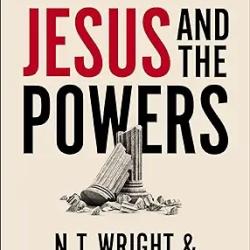THE BONDING
A cold and listless season,
And full of cheerless cheer,
When hopes are raised and dashed again
And joy dissolves in tears.
The search for endless family
The search for one true Friend
Leaves questers tired, disconsolate
With questions without end.
Best find some potent pleasure quick
Some superficial thrill
Than search for everlasting love
When none can fill that bill.
So hide yourselves in shopping
And eating ‘til you burst,
Use endless entertainment
As shelter from the worst.
And hope at least for truce on earth,
Though warlords rattle swords
As if to kill could solve our ills
We seize our ‘just’ rewards.
Mistake some rest for lasting peace
And calm for ‘all is well’
And absence of activity
As year end’s victory bell.
But what if Advent is no quest
Despite the wise men’s star
What if Advent isn’t reached
By driving from afar?
What if Good News comes to us
From well beyond our reach?
What if love and peace on earth
Are more than things we preach?
What if a restless peace
Is what He did intend
Until we open up our lives
And let the stranger in?
What if a peaceless rest
Is not the Christmas hope
What if nothing we could do
Helps us truly cope?
What if there is a bonding
With one who rules above
Who came to us in beggar’s rags
And brought the gift of love?
The God shaped hole in every heart
Is healed by just one source
When Jesus comes to claim his own
Who are without recourse.
So give up endless seeking
Surrender is required
The one who is the Lord of all
Cannot be bought or hired,
He’s not conjured into life
By pomp and circumstance
By Yuletide carols boldly sung
By fun or drunken trance.
He comes unbidden, unawares
Fills crevices of souls
He comes on his own timely terms
And makes the sinner whole.
‘We shall be restless’ said the saint
‘Until we rest in thee’
And find that we have been reborn,
Our own nativity.
How silently, how silently
The precious truth is given
And God imparts to human hearts
The blessings of his heaven.
THEOLOGICAL MUSINGS
This poem was written when I was quite fed up with the commercialization of
Christmas. I felt that we were getting it all wrong, as Christmas was supposed to be about giving not getting, about relating not acquiring, about a spiritual transaction not a monetary one. But there is another side to this, namely that Christmas is a time of questing, not just requesting. It can be the most hideously lonely time of year if one does not have close family or friends to spend it with, or if one’s nearest or dearest has recently passed away. This is of course one reason why alcohol flows so freely at this time of year— for some it’s a matter of surviving Christmas, and obliterating the bitter memories or pain that the season causes to surface in one’s soul. Some drink to remember, but more drink to forget and block out the pain.
It is a strange thing nevertheless, that Christmas should become something of a litmus test on the state of one’s unions or relationships. That first Christmas was surely not experienced as a condemnation or inquisition. It was rather a time of awe and wonder and celebration by various orders of beings from the angelic to the bucolic, from the questers to the sequestered family. And we should note that the gifts brought by the star gazers were not gifts they exchanged with each other or with the Holy family. They were gifts given to the new born king. The primal question these stories raise is not the question of one relative to another hinting “what have you done for me lately”? Rather the primal question raised is—in light of the gift of the Son, what of yourself are you prepared to lay at his feet? Indeed, what about your life do you need to lay at his feet and subject to his inspection? For the King that has everything, ultimately all we have to offer is our selves, or some token thereof. And in the end, Christmas is not about seeking, it is about allowing yourself to be found, to be loved, to be treated as a person of sacred worth, just like the Christ child.
The peace that passes understanding does not refer to the absence of activity of any sort, but rather the presence of a sense of well being which comes from the encounter with the Presence. No amount of revelry, however joyful, ‘produces’ revival—personal or corporate. Christmas is not something one can conjure into life by activities. Christmas comes when the Christ enters in once more into our life, and fills up the crevices of our souls with the divine presence and love.
I have often wondered why the Incarnation happened as it did. The Son of God could surely have come as a full adult if God had so willed it. Is there something to the notion that Jesus came as he did: 1) to make clear every age and stage of life is of sacred worth; and 2) he came in the humble condition he did to make clear that no one on earth is beneath his dignity— not even the least, the last, and the lost.
And there is more to contemplate. If there really was an Incarnation of the divine pre-existent Son who took on human flesh and dwelt amongst us, then surely this required remarkable condescension on God’s part. If there is to be a corporate merger between the divine and the human, then surely the divine must accept some limits, lest the human side of the equation be obliterated. Human beings have limitations of time, space, knowledge, and power and Jesus reflects all these limitations in the Gospels if we read them closely. His life was a real human life, while not ceasing to be divine. His life was not a charade or a play where he pretended to be human.
The Ch ristmas story then is indeed about the goodness of being human, and how human nature can even be hallowed and embraced by God, and it is about God’s great love and desire to renew, restore, redeem human beings so they might better reflect the image of God within us. But there is more. The Christmas story, involving as it does the story of a miraculous virginal conception, reminds us that Jesus could not come simply as we are— fallen creatures, if he wished to redeem us. He did not come simply to identify with the fallen human condition as if that in itself would make us better persons or at least feel better about ourselves. Jesus came as we ought to be, and modeled how we ought to be. His entire life “tempted like us in all respects, save without sin” is a reminder that sin is not an inherent and necessary feature of human nature as it was originally created. It is however endemic of all fallen humans, which is to say all of us except Jesus. So Jesus did not come to simple identify with us, he came to redeem us, since we had fallen and could not get up on our own. Perhaps one reason Christmas time seems like a condemnation to many is that it reminds us that we are not light, or in the light, unless we are in Christ, and yet we so badly long to be in the light, and to have the light within us.
So then Christmas does indeed reveal the human face of the Christ, but it also reveals the all too human face of us all, and so it becomes a time for taking stock, contemplation, re-evaluation. It is then the perfect time for some spiritual reflection of the first order.
. In his poem “He Wishes for the Clothes of Heaven” W.B. Yeats says “but I being poor have only my dreams; I have spread my dreams under your feet; tread softly because you tread on my dreams”. What would it mean to lay your dreams before God, and submit your plans to Christ? Do you, like Yeats, find this a daunting prospect, something you would be afraid to do, and so you must ask God to tred lightly?
A brief story is in order. For a long time in my life I assumed my mission was to get a job at a United Methodist seminary and help with the renewal of my own denomination. This was my dream and my mission, or so I thought. I went through a gut-wrenching interview process at one U.M. seminary and was told after the fact that I did a better job than the other finalist, but the other finalist “met a certain quota we needed to fill”. It was this experience that led me to go back to God and submit my dreams to him, and ask— ‘What is it that you want of me?’ not merely “What is it that I would like to do for you?’ I realized that if one loves one’s dreams more than one loves one’s God, God will require that dream of you, however salutary or noble the dream is. It is never easy to lay what is on and in your heart before God, hoping he will not smash your dreams to pieces.
Dreams are a good litmus test of where one’s heart is, or what is on your wish list, much like the saying of Jesus about how are hearts are where our treasure is. Ask yourself the question— what do I treasure the most, about what do I most often dream and hope for? Then, say to yourself—Am I prepared to offer this up to God and see what God will do with it?














